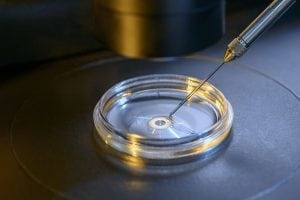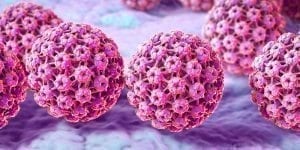When it comes to the road of conception a number of factors come to mind that can influence the outcome of various fertility procedures.
Studies have found that the presence of antithyroid antibodies during early pregnancy are associated with pregnancy complications. Women who are undergoing intracytoplasmic sperm injections (ICSI) should get tested for antithyroid antibodies in early pregnancy as a precaution. However, it was found that women undergoing ICSI who have regular and irregular antithyroid antibody counts had similar outcomes.
What are antithyroid antibodies?
First off, to get the full picture of what antithyroid antibodies are we need to understand the thyroid and the role of antibodies. The thyroid is a gland located near the bottom of the front side of the neck. The thyroid’s function is to produce hormones that the body uses to stay warm, create energy, regulate homeostasis, and keep organs such as the heart and brain working.
The immune system makes antibodies in white blood cells. These white blood cells are created and stored in the bone marrow, but they are also stored in the spleen, lymph nodes, and a particular type of white blood cell called T-cells are stored in the thymus gland, a gland located between the lungs. Antibodies are created to protect your body from outside bacteria and viruses. When harmful bacteria, viruses, or other foreign bodies are inside your body, the white blood cells attack those substances.

Antithyroid antibodies are found in 5 to 15 percent of women at reproductive age. While having antithyroid antibodies are not necessarily a sign of thyroid disease, the prevalence of antithyroid antibodies is concerning since they have been associated with spontaneous miscarriage, recurrent miscarriages, preterm delivery, and maternal postpartum thyroiditis in women with normal thyroid hormone levels.
How Antibodies Impact the Outcome of ICSI
In a study hosted by the Reproductive Biomedicine journal, it was found that the presence of antithyroid antibodies does not affect the outcome of intracytoplasmic sperm injections (ICSI). The study factored in other immunological disorders that may impact the final results of the study by including women with at least one of the positive thyroid antibodies, normal TSH, and free T4 concentrations. Further, women with other immunological disorders, such as antiphospholipid antibody syndrome, were also excluded. These exclusions make the study stronger as the women tested had no visible thyroid problems. In this study of 252 women undergoing ICSI transfer cycles, 219 tested negative for antithyroid antibodies, and 34 tested positive for antithyroid antibodies. It was found that implantation rates, biochemical pregnancy rates, miscarriage rates, and ongoing pregnancy rates were not significantly different in either group.
Another study hosted by the Journal of Endocrinological Investigation found that women with antithyroid peroxidase antibodies showed no significant differences in fertilization, implantation, pregnancy rates, live birth rates and no higher risk for miscarriage than women without antithyroid peroxidase antibodies. In this study, 495 women without the antibodies and 114 women with the antibodies were studied retrospectively to see the outcomes of ICSI.
Considerations for Women with Current Thyroid Problems
Both of the studies referenced in this article studied women with no visible signs of thyroid disease. Women with Hashimoto’s disease, Graves’ disease, a goiter, autoimmune disease, and other abnormal thyroid hormone levels should be cautious about antithyroid antibody presence.
A consultation with your doctor can determine if you need a test for antithyroid antibodies.





